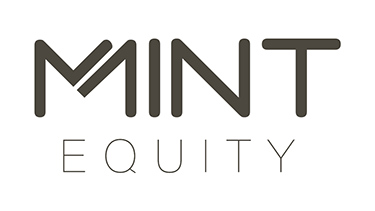Buying a new home can come with a whole list of tough challenges to get through but something that shouldn’t be overlooked is your credit scores. Many buyers are led to believe that their lending approval may be rejected due to a poor credit score or credit rating even though the reality can be a lot different.
You don’t necessarily need a high credit score in order to get a home loan approved but a low score can make it a bit more difficult and more costly. Do you know what your credit score is? If not you are definitely not alone. In fact, a Sydney Morning Herald article states that 78% of Australians have never even checked their credit report history and actually have no idea what’s on their credit profile.
What is a Credit Score?
A credit score is essentially a score that tells anyone that is looking to lend you money how much of a risk you potentially represent to them.
Computers automatically calculate your credit score which is based on your credit file, which is your credit history. Every time you’ve gotten a credit card, opened a bank account or taken out a loan this information has been recorded on your credit file.
What is in your credit file?
Your credit history is collected and maintained by credit reference agencies such as Veda Advantage. This file records information such as any loan applications you apply, any defaults on loans, credit cards and any bankruptcy information.
In 2014 the system was changed so that positive credit reporting is now also included in order to give a more accurate overview of your ability to fulfill your financial obligations. Your credit file helps calculate your credit score and any lender that you approach will generate their own automated one as well. This file is used to determine your risk and your credit score interest rate.
Failed Credit Scores
When applying for a home loan, there are a number of factors that contribute to your credit score. If you fail to get approved for a home loan, it is most often because you don’t meet the lender’s minimum score requirements or you’ve applied too many times for credit.
Minimum score requirements are different for each lender and these requirements are not made public so it’s important to seek professional advice before applying for a loan.
While you can’t know for sure, any of the following that is listed on your credit file could have a negative impact on your credit score:
- Lack of genuine savings
- Bad credit history such as defaults and loan application rejections
- Multiple credit inquiries/applications
- Unstable employment history – eg frequent jobs in a short period
- Unstable address history
- Missed or late payments
What is a good credit score?
If you think you might have a bad credit score you can ask your mortgage broker to look into it for you and you can take steps to improve your credit score, before you apply for a home loan.
The best thing you can do is to see if you can rectify any of the issues that may be the cause of you having a low credit rating.
Here’s some ways you can improve your credit score:
- Speak to a credit repair expert to help remove any incorrect defaults on your credit file
- Never overdraw your credit card and pay the balance each month
- Ensure loan payments are made on time
- Pay off any defaults on your credit file
- Show regular savings
It’s important to remember, each time you apply for a loan your credit record is checked. Lenders can see how frequently your credit has been checked, so banks can see multiple inquiries as a sign of desperation and may decline your loan.
This is where a mortgage broker like Mint Equity is key to the application process as they can do all the shopping around for you before actually submitting an application. Therefore, your credit record will only be checked once.
How banks use credit scores
The Financial System Inquiry in late 2014 endorsed the use of Comprehensive Credit Reporting (CCR), however according to a recent MFAA article only three credit providers share information under the CCR scheme, none of which are major banks, despite CCR being introduced to Australia two years ago.
One of the impacts to borrowers with poor credit ratings is that they often pay higher interest rates and have restrictions around how much they can borrow. But people with good credit scores don’t receive any benefit from holding a good record. If CCR was used more broadly across both the large and smaller lenders, they could potentially offer more competitive risk-based pricing.
Smaller lenders could potentially benefit from CCR as it would allow them to offer more competitive risk-based pricing, however major banks presently hold the vast majority of client data.
Without the government making the sharing of data mandatory across all lenders, credit information will only continue to hinder those with poor credit ratings, so it’s imperative that you look after your credit rating to keep your borrowing costs low.










Learn from Mint Equity about home loans and credit scores and how they impact your home loan interest rate.